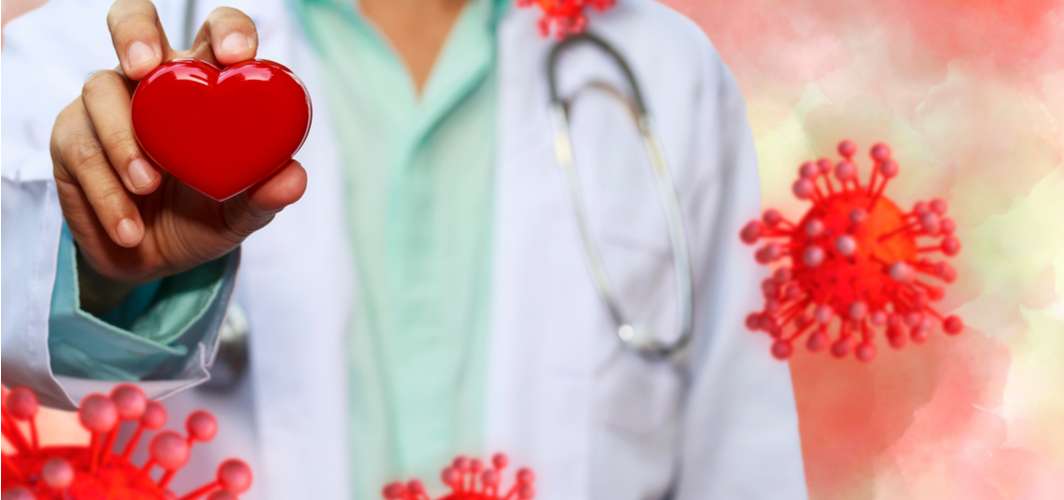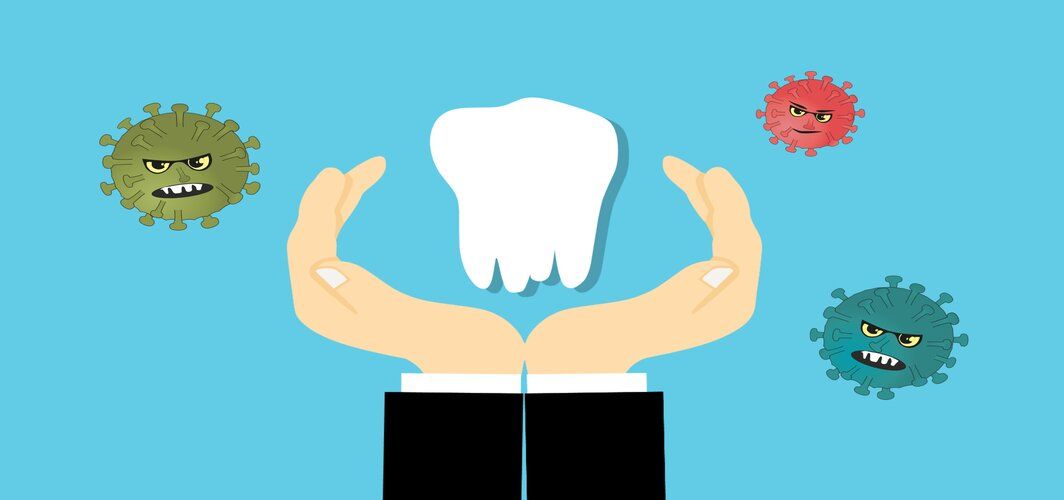Coronavirus Updates
Can Coronavirus Have a Damaging Effect on the Heart?
6 min read
By Apollo 24/7, Published on - 19 August 2020, Updated on - 18 October 2022
Share this article
1
20 likes

The Coronavirus was initially known to affect only the lungs, but new studies have revealed that COVID 19 can cause heart damage too. Scientific evidence suggests that people with pre-existing heart diseases are prone to severe illness due to COVID-19. Studies on hospitalized COVID-19 patients worldwide also showed a significant number of people with cardiovascular diseases. Hence, patients with high blood pressure, history of stroke or heart attack, blood clot complications, valve damage, and those on artificial pacemakers, need to take extra precautions to ensure safety during this time of the pandemic.
According to the World Heart Federation, Coronavirus may increase the risk of heart failure in people with existing heart conditions. Consequently, such patients may be at increased risk of severe illness and complications linked to COVID-19. In this article, we will discuss how Coronavirus can lead to heart damage and review associated clinical evidence. We will also look at what we can do to keep our heart healthy to minimize the risk of severe illness and complications.
How does Coronavirus affect the heart?
Our lungs and heart both have proteins known as ‘ACE2’ (angiotensin-converting enzyme 2), which is an essential regulator of the heart function. It has been found that the Coronavirus prevents ACE2 from performing its normal function of regulating blood pressure and inflammation. As a result, higher levels of inflammation and tissue injury occur, especially in the heart and lungs of COVID-19 patients.
Heart muscle inflammation (myocarditis)
Coronavirus may damage and infect the heart’s muscle leading to the inflammation of the heart. This may affect the heart’s pumping ability, making it weak and vulnerable to serious heart conditions.
Stress cardiomyopathy
Stress cardiomyopathy typically occurs when people are extremely distressed causing the excess release of a stress hormone called 'catecholamine'. This can temporarily disrupt the heart's normal pumping function, causing patients to experience symptoms similar to a heart attack, such as chest pain and shortness of breath. Several researchers have found an elevated number of stress cardiomyopathy cases during the COVID 19 pandemic.
Cytokine storm
Our body releases another protein known as ‘cytokine’ in case of any pathogen attack, thereby invoking the immune system. Some people have an exaggerated immune response which leads to a ‘cytokine storm’ (flooding of cytokines to fight pathogens). This overproduction of cytokines in the blood too quickly can cause cellular demise, tissue injury, and possible damage to different organs, including the heart.
Certain symptoms resulting from the above conditions such as shortness of breath, chest pain, etc. may sometimes be confused with those of a heart attack. Hence, patients with such symptoms are now advised to perform additional testing such as ECG, besides the COVID-19 test.
Recommended Reading: How COVID-19 Causes Heart Muscle Damage
Clinical evidence of the increased risk of COVID-19 complications in heart patients
• University of Frankfurt study: Out of 100 patients (with median age 49) who recovered from the Coronavirus infection, diagnosis revealed cardiac involvement in 78 patients, while 60 patients reported ongoing myocardial inflammation.
• Germany autopsy study: In this study, out of a total of 39 autopsy patients (median age 85) with COVID 19, the cardiac infection was found in the samples of 24 patients (61.5%).
• Wuhan (China) study: A meta-analysis data from the combined six clinical studies revealed that out of 1,527 COVID-19 positive patients, 16.4% had cardiovascular disease and 17.1% had hypertension in pre-existing conditions. Besides this, the case fatality rate (CFR) reported in the study comprised 6% due to hypertension and 10.5% due to cardiovascular disease.
Another study conducted on 416 patients in the Renmin Hospital of Wuhan University revealed that 82 patients (19.7%) had a cardiac injury while 42 of these (51.2%) were reported dead.
How to keep your heart healthy during COVID 19?
Here are some tips which an individual can follow to keep their heart healthy during COVID-19 and after:
• Healthy diet
Intake of more vegetables, fruits, and wholegrain foods instead of packed or processed foods is advisable for a healthy heart. One should try to include plenty of protein-rich foods like seafood (fish, salmon), legumes (beans, lentils), lean poultry and dairy products in their diet (as advised by their nutritionist). Heart and high blood pressure patients should try to avoid red meat. Olive oil or mono and polyunsaturated (MUFA and PUFA) containing oil should be used. Limit the amount of table salt in your food and use herbs or spices instead. Try to include omega 3 fatty acid-enriched food which is good for the heart, like fish, flaxseed, nuts, and plant oil.
• Increased physical activity
Working from home during the COVID-19 pandemic can result in a lack of physical activity which, consequently, may lead to different heart problems. Take a break in between working hours to take a brisk walk or climb the stairs. Alternatively, run on a treadmill. Doing yoga and breathing exercises in the morning hours can help fill the body with more oxygen and make the heart pump more.
• Monitoring heart health
During the pandemic, it is recommended to stay at home. So, it is better to keep a blood pressure monitoring machine and pulse oximeter device at your home to monitor heart health. In extreme cases, COVID-19 infection can cause the blood oxygen level to decline below 90. Hence, with the help of a pulse oximeter, an individual can monitor his/her pulse rate and blood oxygen level daily. Exercising at least 30 minutes before checking blood pressure is recommended.
• Healthy lifestyle
Avoiding/quitting smoking, intake of excess caffeinated, high sugar drinks and alcoholic beverages can be some of the best practices to follow for a healthy heart. Besides this, a sound sleep of a minimum of 8 hours is required for an improved quality of life.
• Stock up medications
If you are a heart or high blood pressure patient, try to continue the prescribed dose of medication. Keep a monthly stock of the same so that you do not need to go outside frequently.
• Follow COVID-19 safety guidelines
Wash your hands frequently with soap and water or use an alcohol-based hand rub sanitizer. Follow respiratory etiquettes and wear a face mask whenever you meet someone or go outside. Maintain social distancing of at least 6 feet with other people when in a public place.
Conclusion
Heart patients can be at higher risk of severe illness due to COVID-19. However, regular monitoring of blood pressure, pulse rate, blood oxygen level, and cholesterol level can lower this risk. Besides this, adopting a healthy lifestyle mentioned in the article and following safety guidelines can help. Also, ensure that you take prescribed medications regularly and consult a doctor immediately in case of any complications like chest pain, irregular heartbeat or breathlessness.
Coronavirus Updates
Leave Comment
Recommended for you

Coronavirus Updates
Can Exercising or Working Out With a Face Mask be Dangerous?
Wearing a face mask when exercising can affect your ability to breathe easily. This may be because exercise results in harder and faster breaths leading to airflow constriction.

Coronavirus Updates
Safety and Hygiene Tips to Follow When Using Public Transport After the COVID-19 Lockdown
Take all the necessary precautions given in this article, including wearing masks and practicing social distancing, to protect ourselves when using public transport after lockdown.

Coronavirus Updates
How Can Dental Problems Be Managed During COVID-19?
Dentists are facing significant challenges in continuing to provide the necessary oral care as the risk of contracting a Coronavirus infection is significantly higher in a dental setting.
Subscribe
Sign up for our free Health Library Daily Newsletter
Get doctor-approved health tips, news, and more.
Visual Stories

Explained: The Highly Transmissible SARS-CoV-2 Variants
Tap to continue exploring
Recommended for you

Coronavirus Updates
Can Exercising or Working Out With a Face Mask be Dangerous?
Wearing a face mask when exercising can affect your ability to breathe easily. This may be because exercise results in harder and faster breaths leading to airflow constriction.

Coronavirus Updates
Safety and Hygiene Tips to Follow When Using Public Transport After the COVID-19 Lockdown
Take all the necessary precautions given in this article, including wearing masks and practicing social distancing, to protect ourselves when using public transport after lockdown.

Coronavirus Updates
How Can Dental Problems Be Managed During COVID-19?
Dentists are facing significant challenges in continuing to provide the necessary oral care as the risk of contracting a Coronavirus infection is significantly higher in a dental setting.